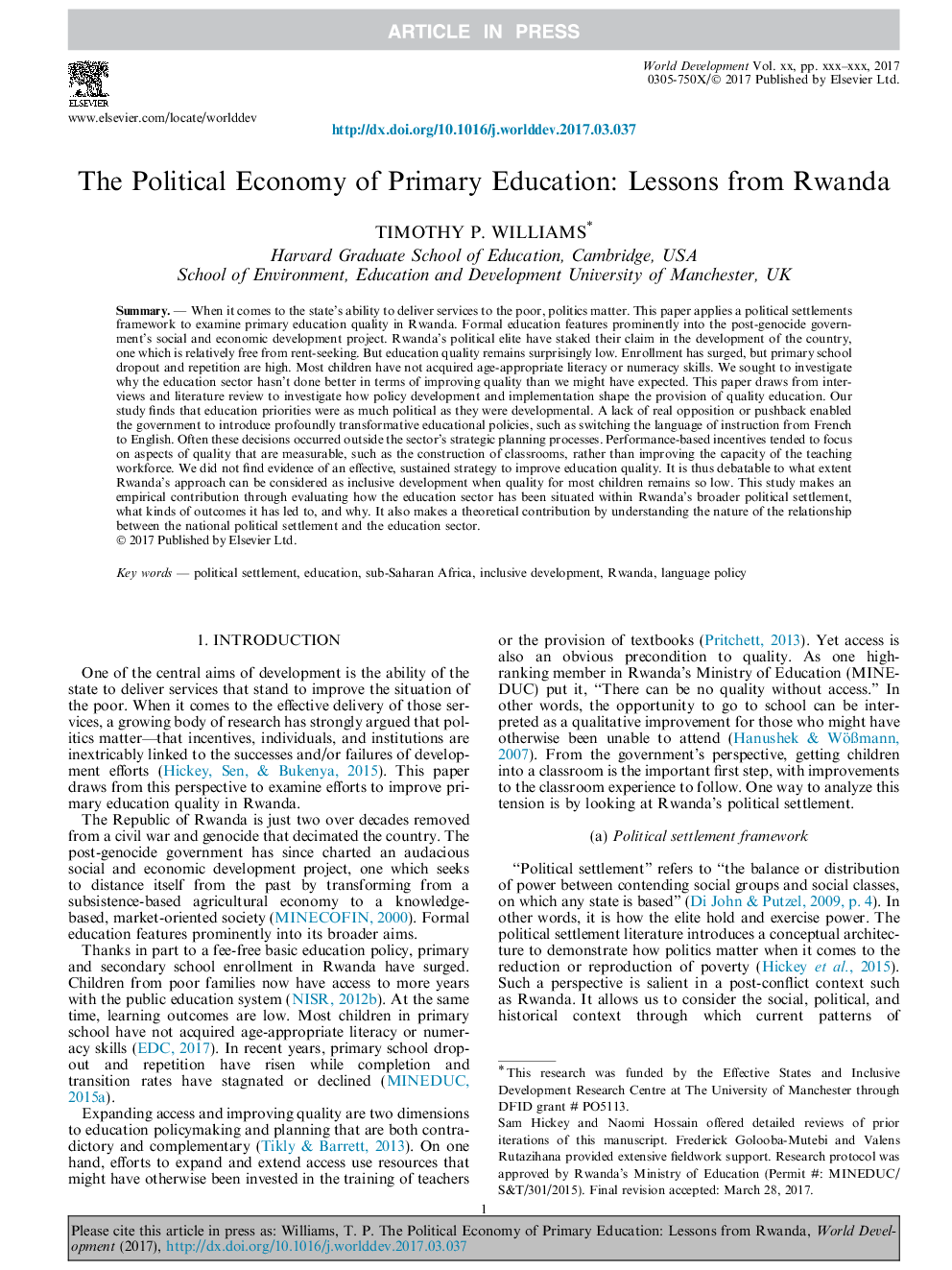ترجمه فارسی عنوان مقاله
اقتصاد سیاسی ابتدایی: درس های رواندا
عنوان انگلیسی
The Political Economy of Primary Education: Lessons from Rwanda
| کد مقاله | سال انتشار | تعداد صفحات مقاله انگلیسی |
|---|---|---|
| 86406 | 2017 | 12 صفحه PDF |
منبع

Publisher : Elsevier - Science Direct (الزویر - ساینس دایرکت)
Journal : World Development, Volume 96, August 2017, Pages 550-561
ترجمه کلمات کلیدی
حل سیاسی تحصیلات، جنوب صحرای آفریقا، توسعه فراگیر، رواندا، سیاست زبان،
کلمات کلیدی انگلیسی
political settlement; education; sub-Saharan Africa; inclusive development; Rwanda; language policy;

